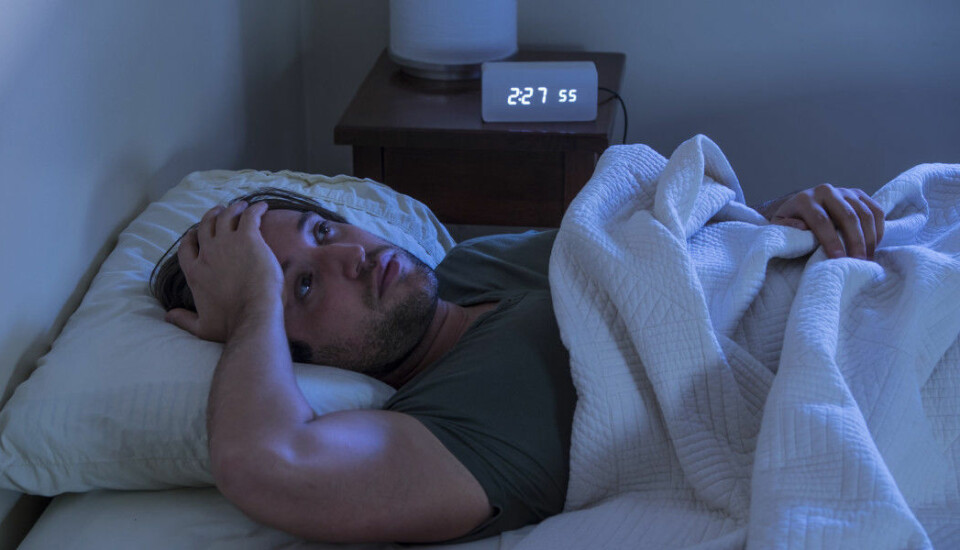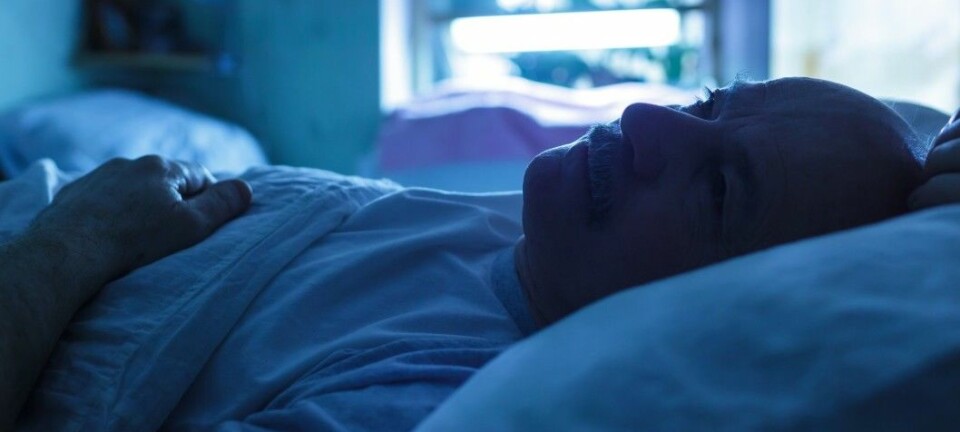
You are highly likely to inherit your parents sleeping problems
Does one of your parents struggle with sleep problems? You should be prepared for the fact that you might also have the same problems.
If your mother or your father sleeps less than six hours a night - you are more than twice as likely to also do so.
This was found in a new Nordic study conducted by a coalition of researchers in Norway, Sweden, Denmark, Iceland and Estonia.
Lifestyle does not explain everything
Researchers have long known that severe sleep disorders, such as sleep apnea, are hereditary.
But what about common sleep problems, such as disturbed or restless sleep, in the general population? This has never been studied before.
“We know that lifestyle, such as exercise, diet and smoking, means a lot. Age also means a lot. But that doesn't explain everything,” says Ane Johannessen.
She works at the University of Bergen and is one of the researchers behind the new study on sleep and heredity.
Nearly 12,000 participants
The study looks at two generations and how they sleep. Nearly 6,000 parents who were on average 54 years old, and one of their randomly selected adult children, who were aged 30 on average, were asked a number of questions about sleep.
The questions were:
- How often do you have trouble falling asleep?
- How many times during the week do you wake up several times during the night?
- How often do you wake up early in the morning?
- Do you snore?
- Are you plagued by feeling very tired during the day?
"When we compare the two generations, we see that there is clearly a higher risk of children having the same type of sleep disorder as their parents," says Johannessen.
Inherited component overlooked
“We have known that certain sleep disorders are hereditary, but we have previously thought that the most common sleep disorders are probably linked to lifestyle. We have believed that parents with young children, or people who have demanding jobs, who don’t exercise or have poor diets sleep worse than people who don’t,” she says.
“Although this is true to a great extent, we see that there is still an inherited component to all common sleep disorders. Heredity plays a much bigger role than we thought,” she says.
The researchers looked at the intergenerational relationships after controlling for factors such as age, gender, BMI, smoking, physical activity, and education.
Every third person has disturbed sleep
The most common sleep disorder is sleeping restlessly and waking several times a night, which is what the researchers call disturbed sleep.
"In our study, which consists of a random sample of the population, we see that more than every third person in the parent’s generation had disturbed sleep at least three times a week," Johannessen said.
If you wake up many times during the night, you don’t get the continuous rest you need. As a consequence, you’ll be tired during the day. This lack of good sleep can affect both your health and quality of life.
If you sleep too little, you are at greater risk of having a heart attack. A lack of sleep also affects our mental health.
Many are tired during the day
Our need for sleep is individual. Not everyone needs the same amount of sleep.
But in this study, the researchers looked at people who got less sleep than they needed and were tired during the day.
Every fifth individual in the parent’s generation experienced this combination of bad sleep and sleepiness during the day. Among their children, as many as 35 per cent said they were afflicted with troublesome fatigue at least three times a week.
This generation, who were 30 years old on average when they participated in the study, often have busy lives with young children. This may be part of the explanation for their exhaustion. But here, too, there was a strong inherited risk, the researchers found.
No idea why
The researchers don’t know why poor quality of sleep is inherited.
“We’ve now found this pattern. And we suspect that genetic mechanisms are behind it. The next step is to see if we find any genetic mechanisms. We have done clinical studies on a selection of the study participants, so we have the opportunity to look into this in a new study,” says Johannessen.
Knowledge enables action
The fact that your sleep difficulties lie in your genes may not help you that much with sleep.
But it can be important for preventing future sleep problems, Johannessen thinks.
“If you know that your parents have sleep problems, it makes it easier for your GP or other health care providers to help you. And it makes it possible for you to take action on your own behalf, before your sleep problem gets too bad. For example, it may be more important for you than for others not to drink coffee at night and to establish good sleep routines early in life,” she says.
Translated by: Nancy Bazilchuk
Reference:
Eva Lindberg, et al: «Sleep time and sleep-related symptoms across two generations – results of the community-based RHINE and RHINESSA studies», Sleep Medicine, Vol. 69, May 2020
———


































